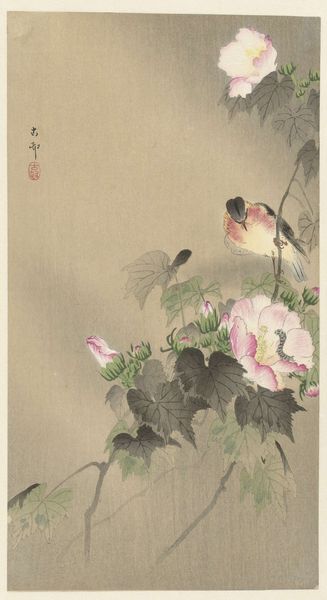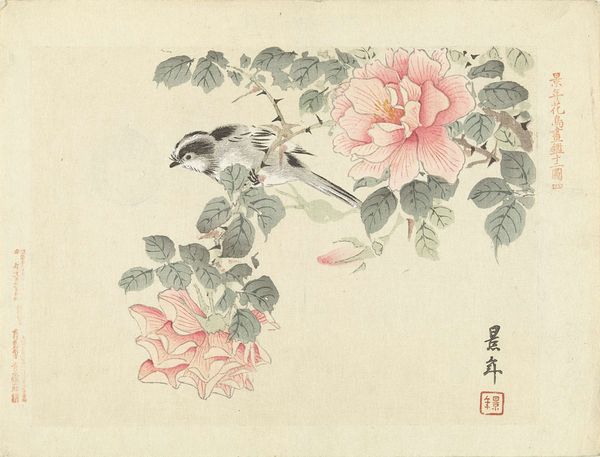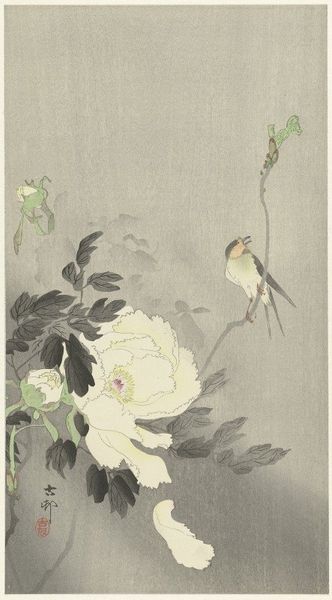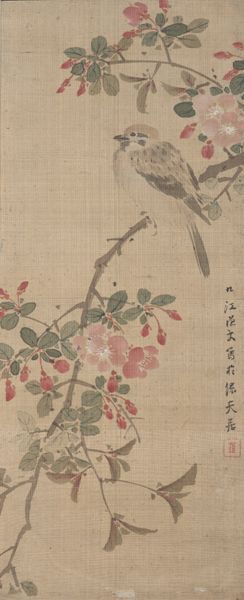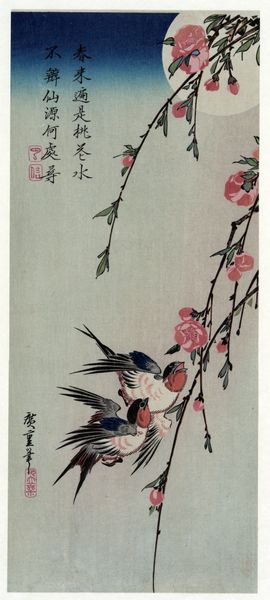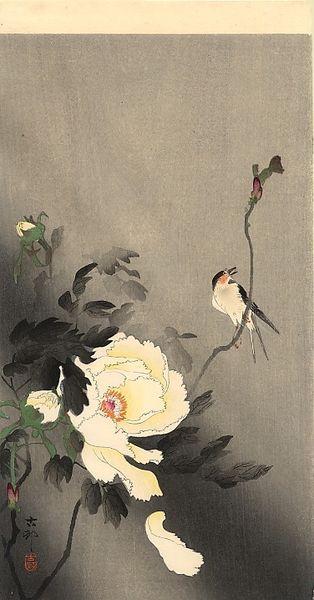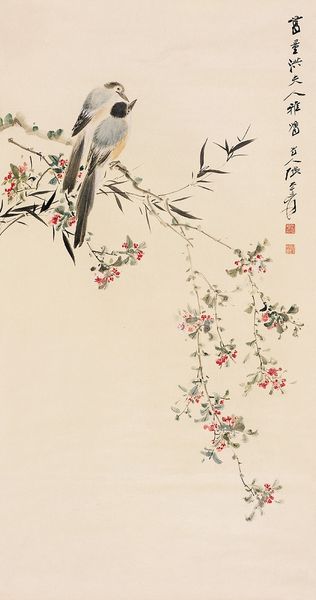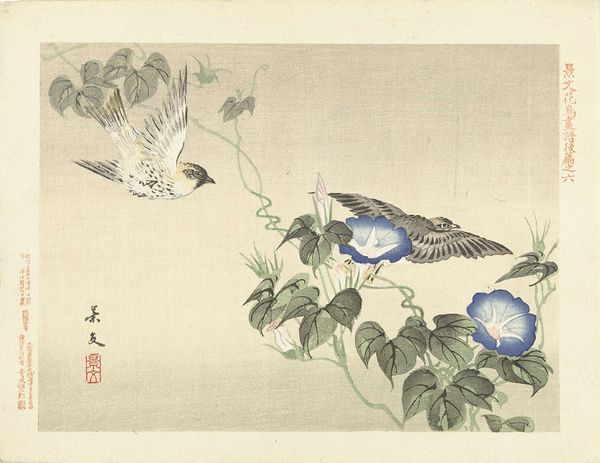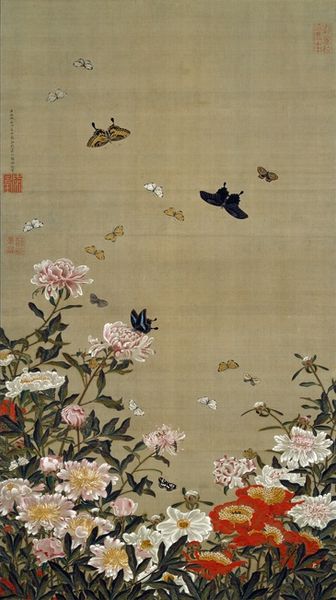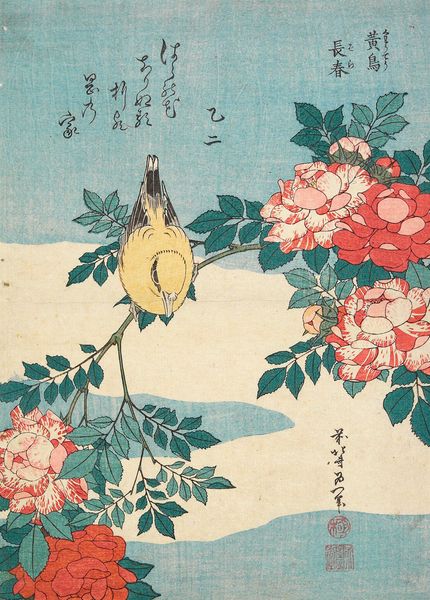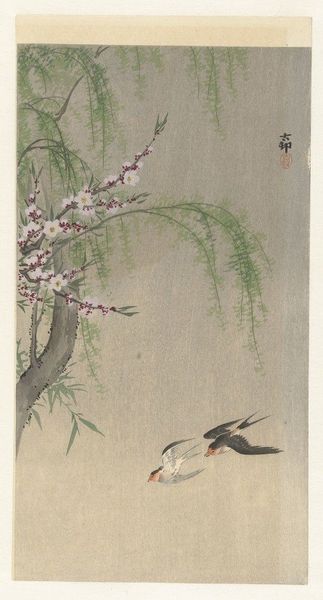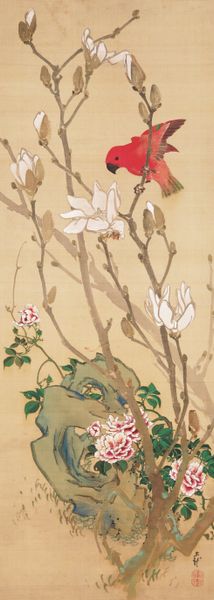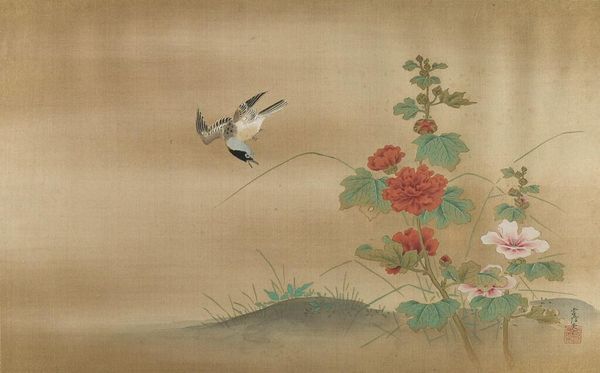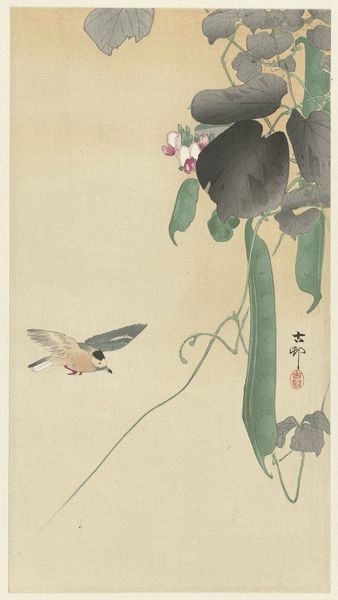
print, paper, ink, woodblock-print
# print
#
impressionism
#
asian-art
#
landscape
#
bird
#
flower
#
ukiyo-e
#
paper
#
ink
#
coloured pencil
#
woodblock-print
#
plant
#
orientalism
#
realism
Copyright: Public domain
Editor: We're looking at Ohara Koson's "Stonechat and blossoming flower," a print created with ink and colored pencil. It's a charming composition, quite simple, and there's an almost immediate sense of stillness. What stands out to you in this piece? Curator: The image whispers of transient beauty. Think of the stonechat itself—a small, migratory bird. Here, perched among the blossoms, it embodies a fleeting moment. What kind of symbolism do flowers suggest? Editor: Usually things like beauty and the ephemeral, maybe youth? Curator: Precisely. Flowers, especially in East Asian art, are rich with significance. This blossom, seemingly a hibiscus, with its lushness and vibrant, if muted, pink, what do those elements suggest in combination with the fleeting presence of the bird? It asks us to appreciate the beauty in a brief pause. Editor: So, it's not just a pretty picture, but a reflection on life's temporary nature? Curator: Consider how often similar images appeared across woodblock prints. Bird and flower compositions recur throughout art history. Each iteration becomes part of the cultural memory, subtly shifting, building layer upon layer of meaning, adding depth with each artist. What if we viewed each as visual attempts to understand death or the cycles of life? Editor: Wow, I hadn't considered that. Seeing how one image connects to this long artistic exploration is fascinating. I will never look at birds and flowers the same way. Curator: Nor will I, thank you! Every new view onto visual culture gives an increased access to psychological meaning!
Comments
No comments
Be the first to comment and join the conversation on the ultimate creative platform.
